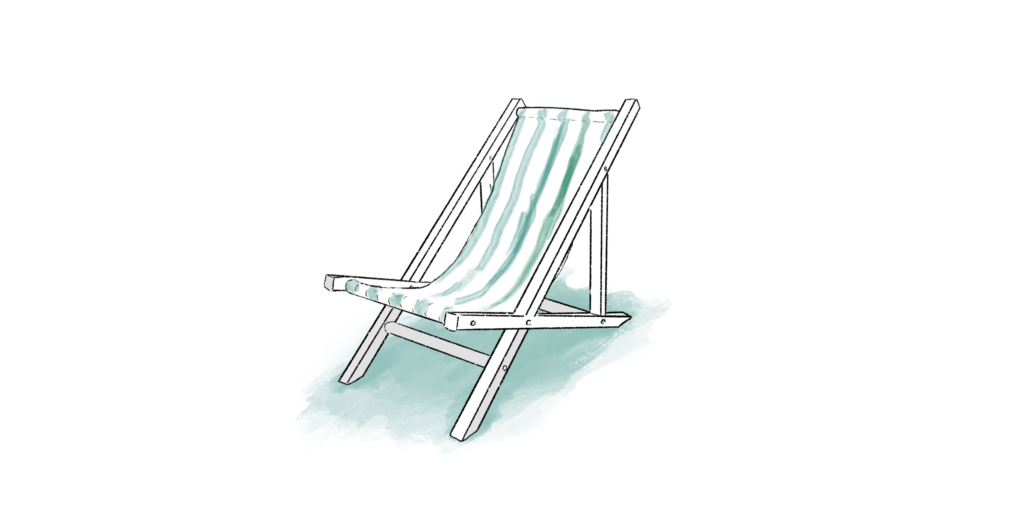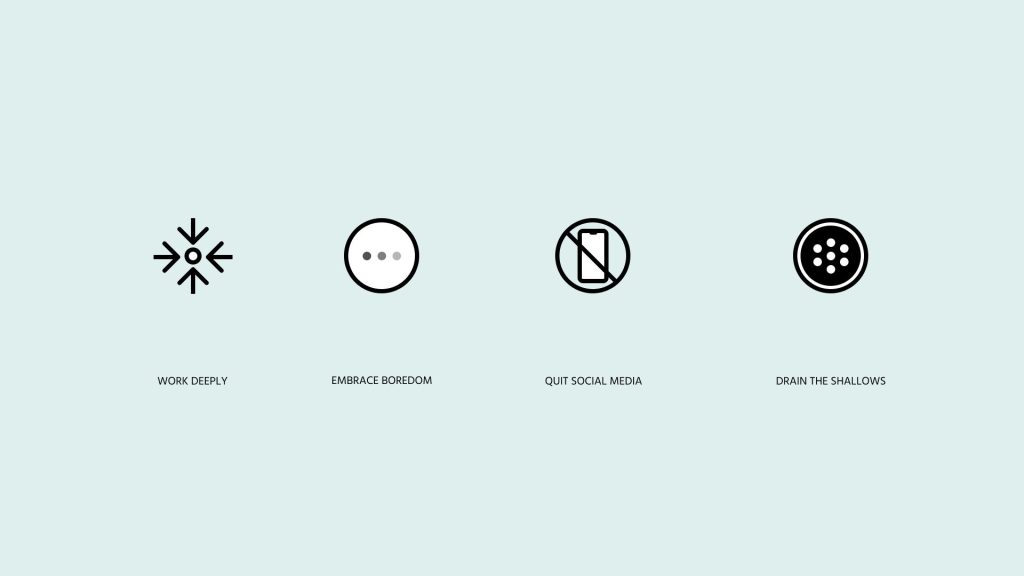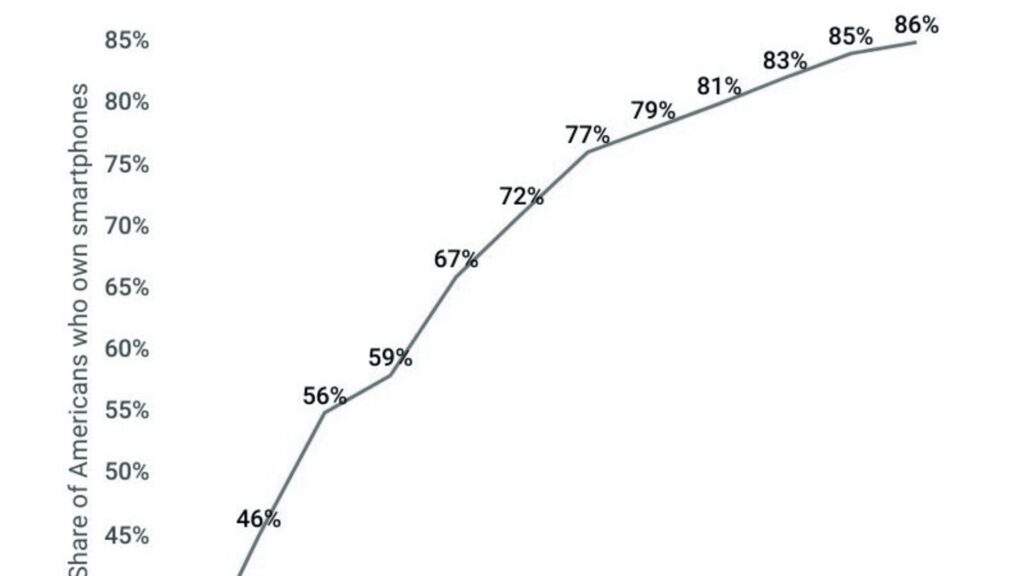What if, in an age of angst, overwhelm, and busyness, boredom is exactly the thing we’re missing?
Go Deeper:
- Join the weekly newsletter.
- Support the channel on Patreon
- Join the Redeeming Productivity Academy
- Explore 1-on-1 coaching
Imagine you are in a dark hallway.
It’s dim, stuffy, and a little bit scary.
Being in the hallway makes you uncomfortable. Thankfully, the hallway is filled with doors. Some are closer. Some doors are further away. The further doors aren’t as appealing to you because to reach them would mean spending more time in this awful hallway. Besides, pleasant music and colorful lights are coming from behind the closest doors.
You quickly choose the nearest door. Anything to get out of this hallway. You open it, step into the light and music, and close the door behind you.
It’s fun in there. Much more enjoyable than that dank hallway. But after just a few minutes, you go back into the hallway to see what’s behind the other doors.
You repeat this again and again. In and out of the hallway as quickly as possible. Checking behind only the nearest doors. But never getting very far down the corridor.

The hallway represents boredom. And the closer doors are the distractions we choose to alleviate the discomfort of boredom.
We all do it. It’s just so easy these days. Anytime we feel the slightest hint of boredom, we look for the closest novelty to alleviate that feeling. That usually means grabbing our phones, checking social media, playing a game, reading the news, or otherwise finding something to occupy our minds. The result, however, is that we find ourselves dashing from room to hallway, room to hallway, never fully pacifying that feeling of boredom and never very much enjoying the distraction either.
The sad thing is that this is a form of self-sabotage. Because if we were to resist the urge to leave the hallway of boredom long enough, we would discover that the further we go down the corridor of boredom, the more satisfying the rooms become.
We used to have hobbies. Now we just have phones.
Behind the further doors lie creativity, focus, productivity, and deeper relationships. All the things we complain have become so non-existent in our lives in this modern age.
We are missing out on the best things in life because we are afraid of a little boredom.
When was the last time you were bored?
I don’t think I’ve been bored since around 2012.
Incidentally, that was the year I got my first smartphone. And also, as it turns out, the year the smartphone became ubiquitous—exceeding 50% adoption in the United States.
2012 was the year we killed boredom.
Killing boredom sounds good, but what if something else died with it? What if, in an age of angst, overwhelm, and busyness, boredom is exactly the thing we’re missing?
Let’s go back to the hallway analogy. While there have always been ways to alleviate boredom, one of the problems with modern times is we’ve installed flashier doors earlier in the hallway of boredom. Whereas in the past, the boredom of waiting in line might have been relieved by a conversation with a stranger, now it’s eased by scrolling Instagram. Before, we might have spent an empty Saturday pursuing a creative endeavor; now, instead of boredom turning into creativity, we consume instead of create.
We used to have hobbies. Now we just have phones.
As the options for cheap entertainment and distraction have become more alluring, it’s become harder and harder to make it far enough down the uncomfortable hallway of boredom to discover those things that produce genuine fulfillment. Instead, we constantly hop back and forth from one novelty to the next, snacking on bites of entertainment but never filling our souls or producing anything of consequence.
But it’s not all bad news. Because the opportunity here is that if you can choose to be okay with being bored, it will change your life. Without doing anything else but developing your tolerance for ennui, you’ll find yourself feeling less busy, more creative, and more focused.
Boredom is not a virtue. But embracing it strategically can have life-changing effects on your work, relationships, and walk with the Lord.
7 Benefits of Strategic Boredom
Most of us are primed to think of boredom in purely negative terms. Indeed, boredom can look like sitting idle and being unproductive. And these certainly can lead to sinful attitudes and actions. But not all boredom is bad. I’m convinced that in the busy world we find ourselves in, boredom, if embraced strategically, should be viewed as a God-given gift.

Strategic boredom isn’t just doing nothing for no reason. Strategic boredom is an intentional eschewal of quick dopamine hits. It’s the choice to sit with the initial discomfort of being in the hallway of boredom. It’s resisting that desire for a fresh hit of novelty so you can press on toward the distant doors. It’s boredom, not for boredom’s sake, but because you know what lies further down the corridor.
Here are just a few benefits of strategic boredom:
1. Boredom gives you time to process
It was Nobel Prize-winning economist Herbert A. Simon who famously said, “a wealth of information creates a poverty of attention.”
We simply have too many things pulling at our attention each day. The boredom killers are really attention eaters. And if we never pause information’s feeding frenzy on our attention, we will never be able to process what we’re hearing and seeing, a necessary step to exercise discernment or put any of that information to use.
2. Boredom improves memory
It’s a common complaint that we don’t seem to remember stuff like we used to. But how could we? We’re inundated with information without ever a break to think. Strategic boredom can improve your memory.
Having a reliable memory is important in all of life, but all the more important when we consider that believers are encouraged to meditate upon Scripture (See Psalm 48:9; 64:6; 77:2; 119:15, 23, 78, 97, 99, 148). But meditating doesn’t just mean reading it over and over again. It means reading, remembering, and then thinking about it. That process is short-circuited when you can’t remember because your brain is full of junk novelties from TikTok.
A lot of people struggle with memorizing Scripture not because they don’t have the right notecard system but because they think the memorizing happens only when they’re reviewing the verse. But memory—the kind that makes something sink deep into your heart—happens when you think about it later, apply it to your life, ask questions about what it means, and synthesize it with other things you know from Scripture. Meditation, not bare repetition, is how you hide God’s Word in your heart.
But memory will never improve, and you’ll never take the time to meditate on Scripture if you’re always on the run from boredom.
3. Boredom helps you worship
I was at the airport this past weekend. I was early for my flight and had nothing to do. At first, I pulled out my phone like everyone else. But I had been thinking about this article. So I put the phone away and decided instead to just watch.

What I saw was a beautiful cloud-filled sky over South Florida. I watched the airplanes taking off and landing. I marveled at both creation and the feats of engineering God had enabled man to accomplish. I turned my attention to the people in the terminal with me: a group of boys playing together, a woman resting on her husband’s shoulder. I wondered what their lives must be like. I considered that each was not just a background character in my movie but an individual creature God had made to worship Him.
I prayed for them.
I thanked the Lord for the beauty and the wonder.
I worshiped.
Worship begins with observation. Observation of what God is like and what He is doing as revealed through His creation and Word. If you want a shot in the arm of your prayer life and worship, choose to be bored for an afternoon. Go for a walk in the park. Go downtown and see the masses. That will get you fueled up for praise and prayer for the rest of the month. Because boredom helps you worship.
4. Boredom makes you more productive
In his book Deep Work, Cal Newport argues the great productivity superpower of our age is the ability to concentrate. But developing the ability to focus deeply requires training. Newport observes, “To simply wait and be bored has become a novel experience in modern life, but from the perspective of concentration training, it’s incredibly valuable.” (Page 165).

I once heard someone say that the best way to force yourself to focus is to remove all distractions, so all that’s left is what needs to be done. When what you should do is the most interesting thing in the room, you’ll do it. That’s the productive value of strategic boredom.
People who know how to be bored know how to focus. And, in turn, produce more valuable work.
5. Boredom makes you creative
Remember those days sitting in class, bored to death? What did you do? You daydreamed.
God designed our brains to seek out novelty. That’s why the internet is so addicting; it always has something new to offer. But when we can’t find novelty in our environment, we create it. It’s why we daydream and write songs, stories, and poems. Boredom is often the impulse that precedes creativity.
Busy is the opposite of bored. If you’re never bored, then you’ll always feel busy.
The Psalter would have been much shorter if David had an iPhone to keep him occupied during those long days watching sheep as a boy. Instead, he was likely bored. And boredom led him to create worship, song, and poetry.
If you feel like you’ve hit a dry spot creatively, it could be because you’re too quick to flee the hallway. Boredom forces you to be creative.
6. Boredom leads to better relationships
Our constant need for entertainment means a dearth of deep relationships. We’ve all wryly observed that even when we gather with loved ones, everyone is just on their phones. Together in space and time but in our own little worlds.
We used to entertain ourselves through conversation. But now we’re so scared of an awkward pause or the slightest whiff of tedium that we’d rather bury our faces in our devices than talk with those around us. But our fear of boredom doesn’t just drive a wedge between us and those we already know. It also keeps us from meeting new people.

I wonder if the smartphone will not have been Satan’s greatest tool in his battle against evangelism. How do we hope to proclaim the good news to strangers if we can’t even start a conversation with them anymore because we can’t bear to pry our faces off our screens?
But when you embrace boredom, you find relationships.
7. Boredom beats back busyness
I had a lot of interesting takeaways from my experiment using a dumb phone a couple of years ago. But what surprised me most was that I felt less busy when I didn’t have a smartphone.
But I wasn’t actually less busy.
I still had the same work to do, the same responsibilities, and the same pressures. But when I didn’t have my phone, I felt less overwhelmed, less on the verge of burnout, less like I was just barely clinging on by my fingertips. When I was disconnected from that constant IV drip of information, it was like someone turned down the volume. All those haunting and vague demands that emanated from my phone—I should buy that, I need to look into that, you should be more like him, why did they say that, she said what—were silenced. As a result, I felt less busy.
It makes sense when you think about it. Busy is the opposite of bored. If you’re never bored, then you’ll always feel busy.
I wonder how many of us think we’re working too hard when really we’re just playing too hard. We think we’re busy, but we’re just overwhelmed by the constant information noise. We think the solution is to do less, commit to less, volunteer less, and work less. And maybe those things are necessary. But perhaps the first step when feeling overwhelmed should be to step back from the constant entertainment and simply choose to be bored.
Conclusion
We could list dozens more benefits of boredom. But the message should be clear: When you run from boredom, you are running from life.
The flashy, fun diversions behind the easy-to-reach doors are not satisfying and aren’t serving anyone. If we hope to lead meaningful, God-glorifying lives in this age of distraction, we must learn to embrace strategic boredom.
Because boredom is a gift from God.


